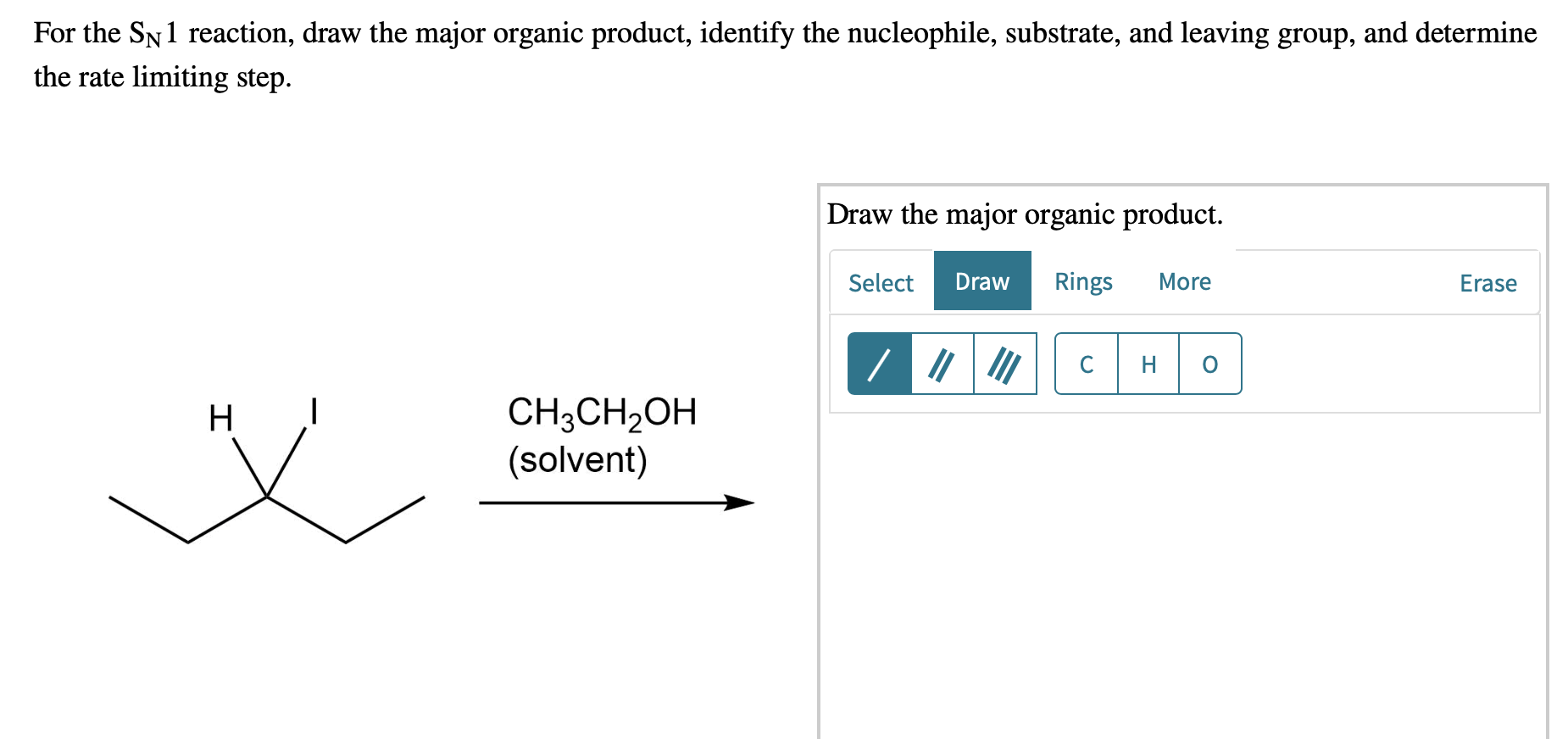Draw The Major Organic Product Of The Sn1 Reaction:
Draw The Major Organic Product Of The Sn1 Reaction: - Web 7) what is the major organic product in the following reaction? Web in the s n 1 reaction, the carbocation species is a reaction intermediate. A potential energy diagram for an s n 1 reaction shows that the carbocation intermediate can be visualized. In an sn1 reaction, the major organic product is typically the result of a nucleophile attacking a trigonal planar carbocation intermediate. If no reaction occurs, draw. Predict the products and specify the reagents for. Web draw the major, neutral organic product obtained if: Draw the major organic product (s) of the following reaction. Web this is sn1 reaction. Web sn1 stands for substitution nucleophilic unimolecular. Predict the products and specify the reagents for. Web for the three‑step sn1 reaction, draw the major organic product, identify the nucleophile, substrate, and leaving group, and determine the rate limiting step. A nucleophilic substitution reaction is occurring—a hydroxyl group is replacing a halogen—yet the reactivity order seems backward. You'll get a detailed solution from a subject matter expert that. Web in the s n 1 reaction, the carbocation species is a reaction intermediate. If no reaction occurs, draw. Predict the products and specify the reagents for. A nucleophilic substitution reaction is occurring—a hydroxyl group is replacing a halogen—yet the reactivity order seems backward. It is a type of. If no reaction occurs, draw. Web science chemistry chemistry questions and answers draw the major organic product of the following sn1 reaction: So nucleophile should be substituted with a leaving group. Web what’s going on here? The major product is generated from the more stable carbocation, while the minor product forms from the. Web chemistry chemistry questions and answers draw the major organic product of the following sn1 reaction. B) the reaction proceeds by the sn2 mechanism. On the left is our alkyl halide, on the right is our nucleophile with a. Web for the three‑step sn1 reaction, draw the major organic product, identify the nucleophile, substrate, and leaving group, and determine the. Web in asymmetrically substituted alkenes, two different carbocations are possible. You'll get a detailed solution from a subject matter expert that helps you learn core concepts. On the left is our alkyl halide, on the right is our nucleophile with a. Web 7) what is the major organic product in the following reaction? Web chemistry chemistry questions and answers draw. A) the reaction proceeds by the sn1 mechanism; Web in asymmetrically substituted alkenes, two different carbocations are possible. But it shows that i did not draw it right. Web chemistry chemistry questions and answers draw the major organic product of the following sn1 reaction. Web i got the correct answer for it being an sn2 mechanism. Web 7) what is the major organic product in the following reaction? If no reaction occurs, draw. Web chemistry chemistry questions and answers draw the major organic product of the following sn1 reaction. Draw the major organic product (s) of the following reaction. It is a type of. A potential energy diagram for an s n 1 reaction shows that the carbocation intermediate can be visualized. Web in the s n 1 reaction, the carbocation species is a reaction intermediate. Transcribed image text:draw the major organic product of the following. Web i got the correct answer for it being an sn2 mechanism. You'll get a detailed solution from. Predict the products and specify the reagents for. This problem has been solved! A) the reaction proceeds by the sn1 mechanism; Web in asymmetrically substituted alkenes, two different carbocations are possible. Web i got the correct answer for it being an sn2 mechanism. B) the reaction proceeds by the sn2 mechanism. A) the reaction proceeds by the sn1 mechanism; Web determine the rate law & predict the mechanism based on its rate equation or reaction data for s n 1 reactions; So nucleophile should be substituted with a leaving group. Web draw the major, neutral organic product obtained if: Web draw the major, neutral organic product obtained if: Web this is sn1 reaction. I know that it is not where the br replaces the oh. Web science chemistry chemistry questions and answers draw the major organic product of the following sn1 reaction: A potential energy diagram for an s n 1 reaction shows that the carbocation intermediate can be visualized. In an sn1 reaction, the major organic product is typically the result of a nucleophile attacking a trigonal planar carbocation intermediate. B) the reaction proceeds by the sn2 mechanism. Web determine the rate law & predict the mechanism based on its rate equation or reaction data for s n 1 reactions; A nucleophilic substitution reaction is occurring—a hydroxyl group is replacing a halogen—yet the reactivity order seems backward. Web what’s going on here? You'll get a detailed solution from a subject matter expert that helps you learn core concepts. Web in the s n 1 reaction, the carbocation species is a reaction intermediate. In the given compound, we are given with hydroxide which is not a good leaving group. Web chemistry chemistry questions and answers draw the major organic product of the following sn1 reaction. The major product is generated from the more stable carbocation, while the minor product forms from the. A) the reaction proceeds by the sn1 mechanism;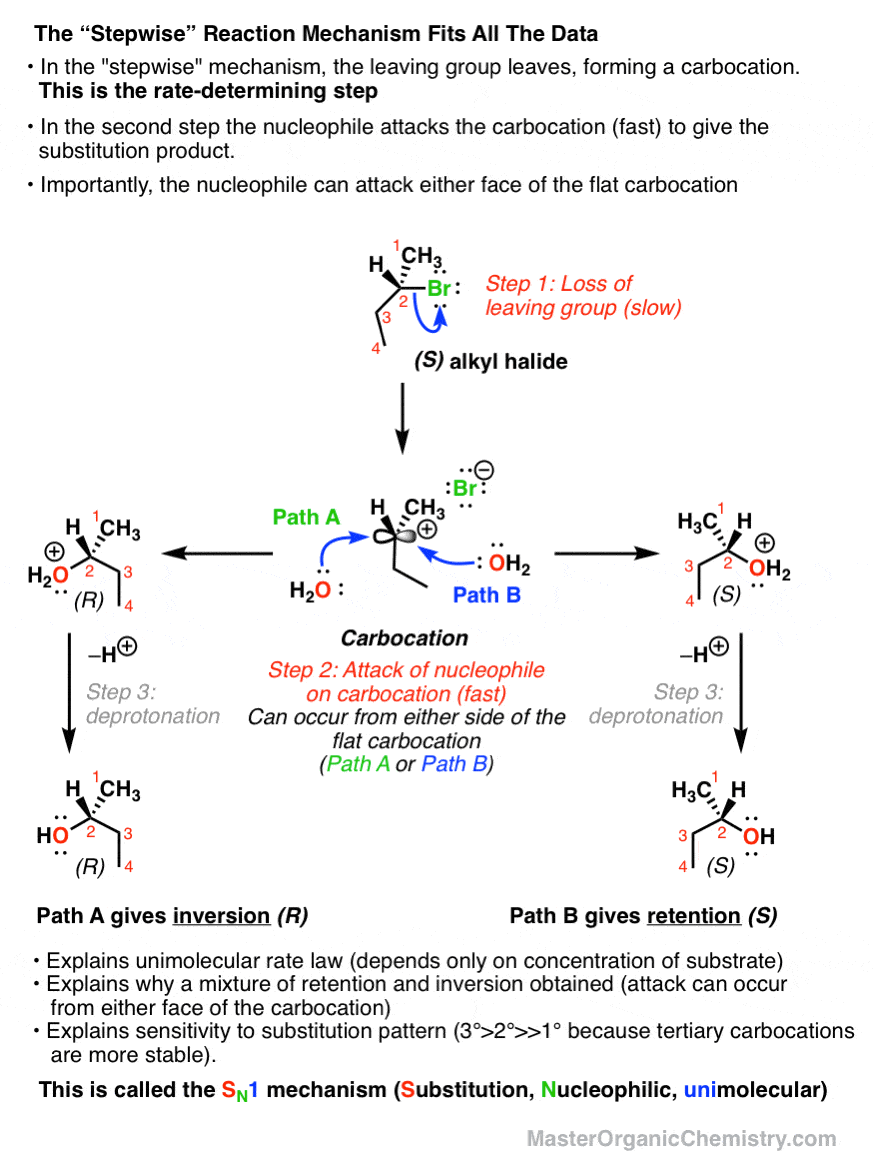
The SN1 Reaction Mechanism Master Organic Chemistry

Solved For the following SN1 reaction, draw the organic
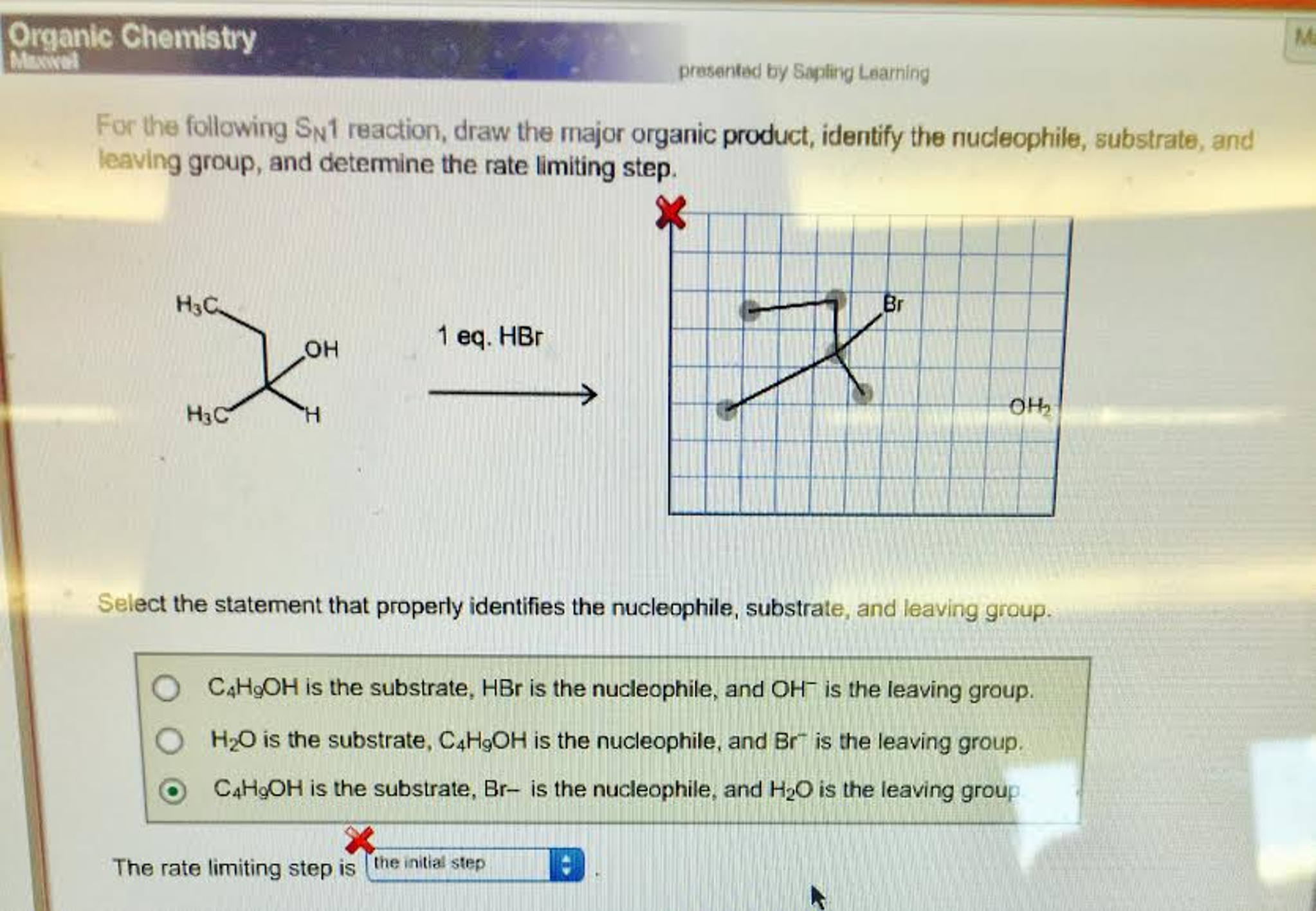
Solved For the following SN1 reaction, draw the major
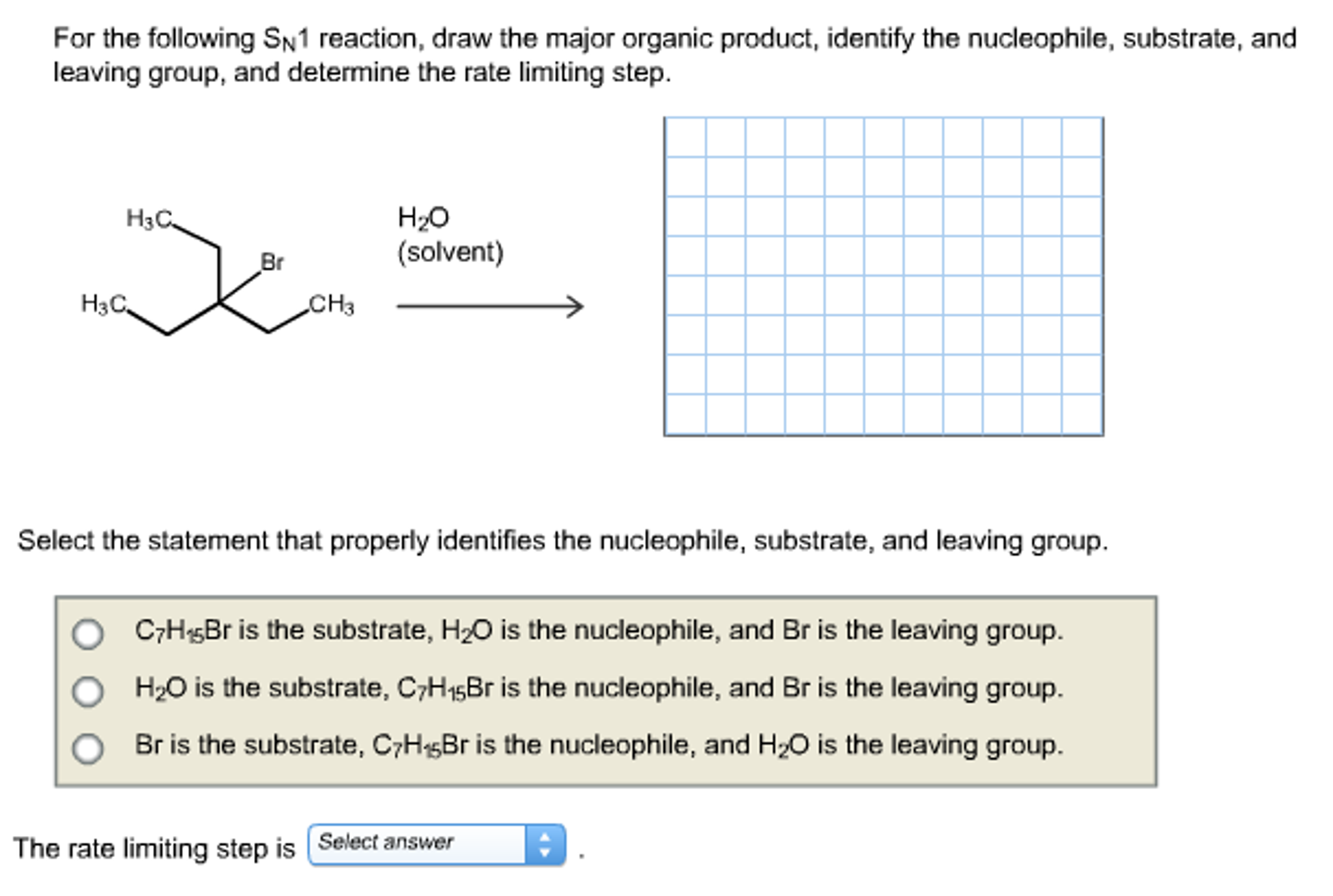
Solved For the following SN1 reaction, draw the major

Draw the major, neutral organic product obtained if the reaction
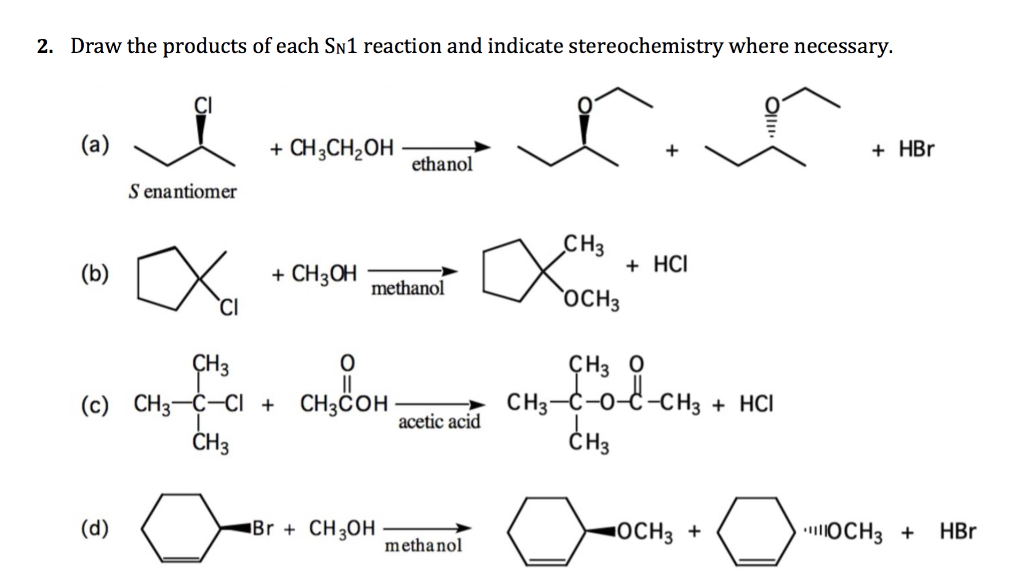
Solved 2. Draw the products of each SN1 reaction and
Solved draw the major products of the SN1 reaction shown
Solved For the Sn1 reaction, draw the major organic product,
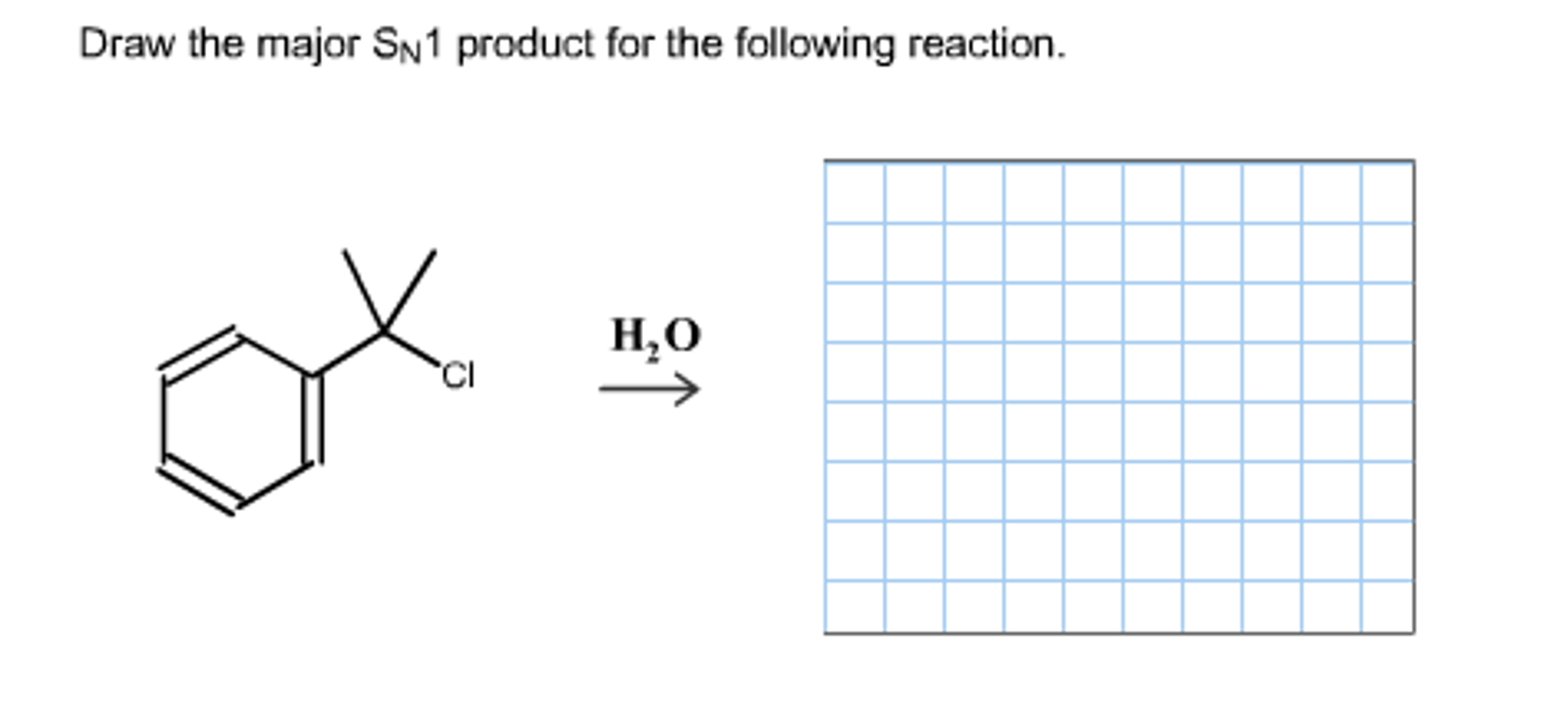
Solved Draw The Major SN1 Product For The Following React...
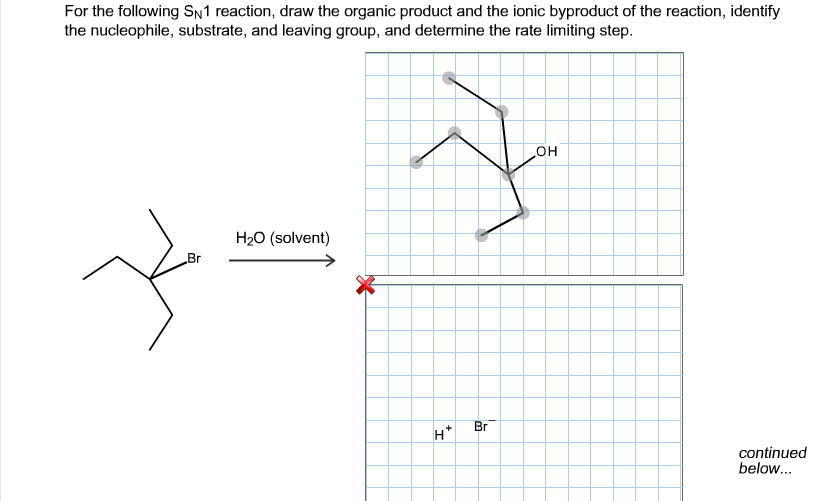
Solved For the following SN1 reaction, draw the organic
On The Left Is Our Alkyl Halide, On The Right Is Our Nucleophile With A.
Web For The Three‑Step Sn1 Reaction, Draw The Major Organic Product, Identify The Nucleophile, Substrate, And Leaving Group, And Determine The Rate Limiting Step.
Web I Got The Correct Answer For It Being An Sn2 Mechanism.
So Nucleophile Should Be Substituted With A Leaving Group.
Related Post:

